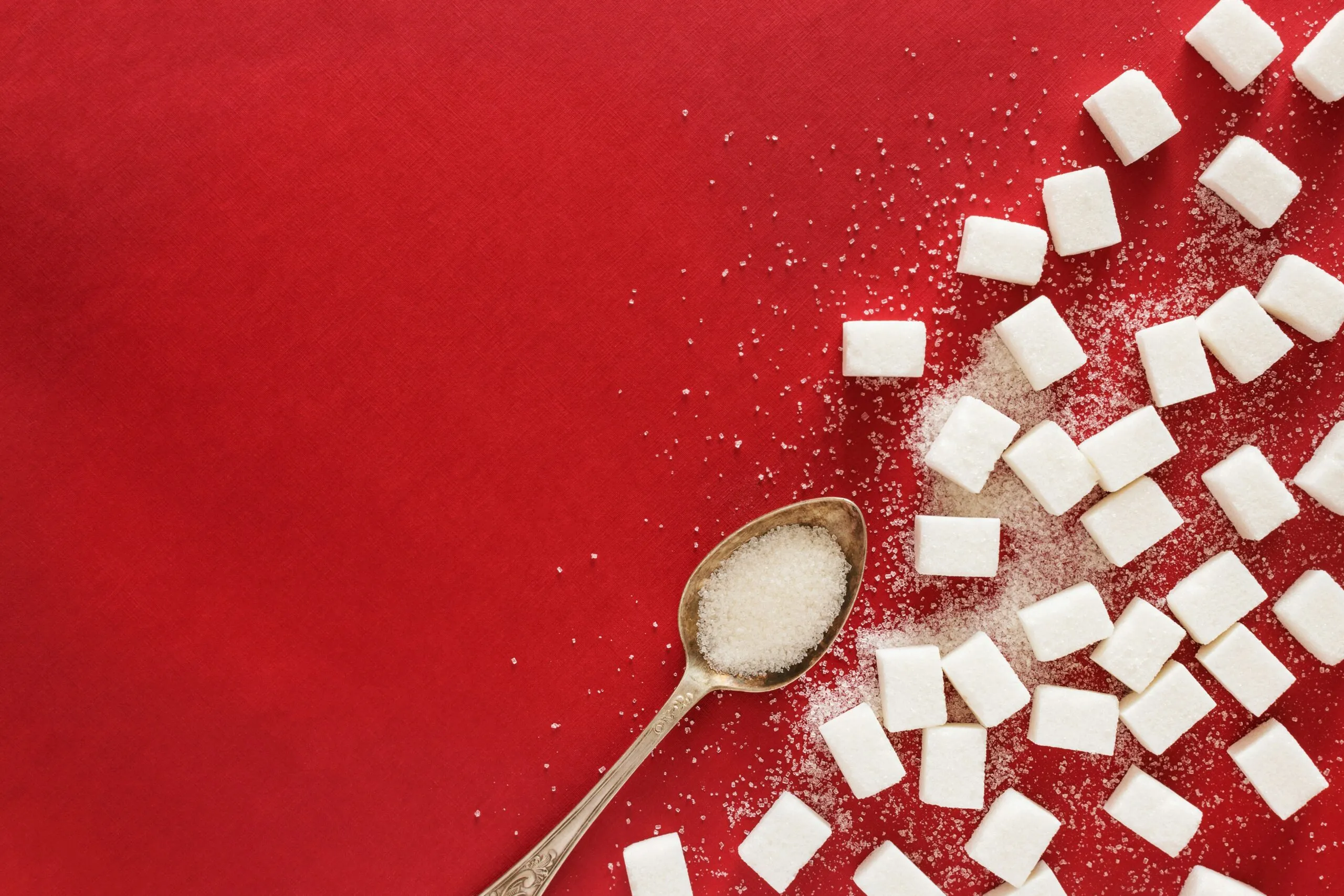12 Reasons Why Sugar Is Bad for Your Health
The first step towards a healthy lifestyle is to give up bad habits that poison our body day after day. And these are not only well-known poisons, such as nicotine and alcohol, but also the food products that we love and to which we have a strong craving. One of these products is sugar.

Just 150 years ago, this snow-white sand was worth its weight in gold. It was sold in pharmacies on prescription, and therefore sugar was unavailable to ordinary people.
Today, everything has changed. A modern person cannot imagine his life without sugar. Tea drinking, making compotes, making pies, cakes, sweets and any other confectionery products are impossible without it. What can we say about sweet carbonated drinks and store-bought juices, which contain a huge amount of sugar!
And even if we do not consciously add sugar to the dishes we prepare, this does not mean that it does not enter our body. Sugar is used in the production of sausages and hot dogs, bread, canned goods, yogurts, dietary cereals, ketchup and mayonnaise, mustard and many other products. Sweet carbonated drinks and store-bought juices are especially saturated with sugar, into which this sweet product gets artificially in the form of a preservative.
What is sugar
In fact, sugar is a regular carbohydrate called sucrose, which consists of two monosaccharides – glucose and fructose. It is a pure source of energy for the body, not carrying any other value. In fact, it is an “energy dummy”, devoid of fats, proteins and microelements. At the same time, the caloric content of sugar is 400 kcal per 100 g of product.
When sucrose enters the body, it stimulates the production of the pancreatic hormone insulin. This hormone delivers monosaccharides to various organs and tissues, filling the body with energy. No cell can exist without energy, which means that sugar is the source of life for our body!
But the whole problem is that modern people consume too much sugar. The daily dose of this substance, safe for health, is limited to 30-50 g, while the average person consumes 150-200 g of sugar per day, which exceeds the norm by 3-4 times! Such a bad habit is dangerous to health, causes a number of serious diseases and significantly reduces life expectancy. And to be convinced of this, let’s consider the harmful properties of this sweet product.
12 Harmful Properties of Sugar That Destroy Our Health
1. Causes the development of diabetes
The most well-known negative consequence of sugar consumption is the development of such a dangerous disease as diabetes. As we have already said, when glucose enters the body, the production of insulin is activated, delivering energy to the cells. But when we indulge in sweets and fast food, saturating the body with an excess of glucose, the pancreas is forced to produce insulin in huge quantities. And if this process continues day after day, the body’s cells gradually become resistant to the action of insulin, and the hormone itself stops working properly. As a result, insulin resistance syndrome develops, which we all know as type II diabetes.
You can avoid such a serious disease by switching to a diet, monitoring your weight, and constantly monitoring your blood sugar levels.
2. Causes obesity
It should be said that our body clearly distributes the sugar entering the body, sending part of it to replenish energy reserves, and utilizing the rest in the liver in the form of glycogen. This is the so-called strategic reserve, which the body can take at any time and use for its own needs. However, with too active consumption of sugar, glycogen reserves in the liver very soon begin to exceed all conceivable indicators. In this case, glycogen begins to be deposited in the form of fat reserves, primarily on the stomach and hips.
The result of such a passion for sugar is obesity, which not only spoils the appearance, but also leads to health problems, creating an additional burden on the heart and blood vessels, as well as disrupting the hormonal balance.
It is possible to cope with obesity. You just need to understand the negative consequences of this disease, and then radically change your life, in particular, give up bad habits, switch to proper nutrition and provide the body with sufficient physical activity.
3. Promotes the formation of free radicals
A diet in which a person consumes sugar in excess leads to the formation of free radicals in the body. A free radical is a molecule whose outer shell lacks a paired electron, as a result of which such a molecule becomes aggressive and capable of causing harm to the body. It is under the influence of free radicals that inflammatory processes develop in the body, chronic diseases appear, and malignant tumors arise.
Moreover, under the influence of sugar, the amount of antioxidants in the body decreases, i.e. molecules that prevent the oxidation of other molecules and the formation of free radicals. Thus, excessive sugar consumption threatens not only health, but also human life.
To cope with this problem, it is important to limit the consumption of sugar, confectionery and sweet pastries as much as possible, and instead, saturate the diet with products containing antioxidants. These can be berries (blackberries, raspberries and cranberries), nuts (walnuts and almonds), artichokes and broccoli.
Sugar
4. Causes a false feeling of hunger
Our body produces substances that regulate feelings of hunger and satiety. The hormone ghrelin, which is called the “hunger hormone”, increases appetite and makes us pay attention to food. The hormone leptin or the “satiety hormone”, on the contrary, causes satiety and suppresses the feeling of hunger.
When on a diet, hormones work harmoniously, without causing problems for the body. However, when we consume too much fructose, leptin stops responding to another portion of sweetness, and the production of ghrelin is no longer suppressed as before. As a result, a person begins to overeat.
There is another problem. Excessive sugar consumption causes a sharp increase in blood glucose levels and an equally sharp decline. The body then requires immediate replenishment of the glucose deficit, causing a false feeling of hunger. The result of such negative processes is overeating and obesity.
5. Causes cardiovascular diseases
Excessive sugar consumption seriously damages the heart and blood vessels. As noted above, excess glycogen in the liver gradually turns into fat. And the most important component of fats are triglycerides.
An increase in triglycerides in the blood increases the risk of heart disease. It is because of the excess triglycerides that cholesterol plaques begin to accumulate on the walls of blood vessels. This process leads to a situation in which the lumen of the vessel decreases, which interferes with the full flow of blood and leads to high blood pressure, and therefore hypertension. Over the years, the vessels become coated with cholesterol, which leads to a severe disease called atherosclerosis. This disease affects the functioning of the brain, provokes fragility and brittleness of blood vessels, and also leads to early death from coronary heart disease.
No less dangerous is the fact that plaques on the walls of blood vessels can break off at any moment and block the blood flow, causing a heart attack or stroke. These critical conditions are extremely dangerous, as they lead to death or make a person disabled for the rest of his life.
To support the heart and prevent such dangerous consequences, in addition to eliminating sugar from the diet, it is necessary to eat more fruits (apples, grapefruits, avocados, pomegranates), eat cereals and flaxseed oil, as well as legumes and various vegetables.
6. Damages the liver
Excess sugar also harms the liver itself. The point is that when sucrose breaks down into glucose and fructose, the former is immediately used to produce energy, while the latter goes to the liver, where it is processed and only then used by the body. And if you consider that fructose enters the body in huge quantities, this becomes a serious burden for the liver.






